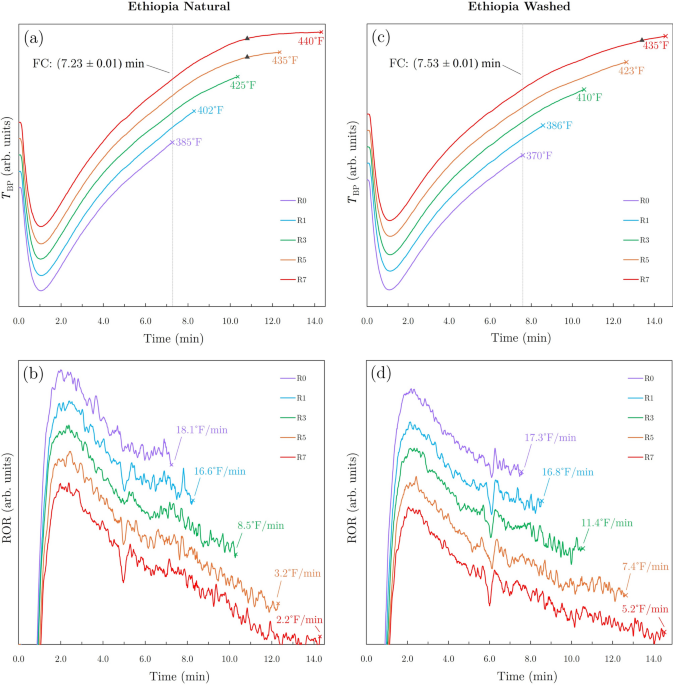Abstract
The effect of degree of roast on resulting caffeine content in brewed coffee has been extensively researched, but conflicting methodologies and results have muddled development of a general conclusion. In this study, 30 unique combinations of green coffee variety, degree of roast, and brew time were investigated regarding extraction yield and caffeine content. An AeroPress brewer was used to prepare brew samples using a 15:1 mass ratio of brew water to ground coffee. Refractometry and HPLC were respectively used to measure extraction yield and caffeine content of brewed samples. Scanning electron microscopy was used to measure porosity of roasted seeds and showed increasing porosity with the degree of roast. Extraction yields generally decreased for roast batches with roasting mass losses greater than (\sim)12–14%, and caffeine concentrations in 10-min brews decreased for roast batches with drop temperatures greater than (\sim)400–420 (^{\circ })F. Under identical brewing conditions, caffeine concentrations in brewed samples were generally lower for dark roasts than light and medium roasts. However, at identical extraction yields, dark roasts generally exhibited higher caffeine concentrations than lighter roasted coffees. It is likely that the volatilization or decomposition of soluble compounds and increased porosity due to roasting act as competing mechanisms that determine compound concentrations in resulting brews.



That was an interesting article to read, and it looked pretty scientific too. Using Fahrenheits and splines totally sticks out, but the rest looks pretty good to me.